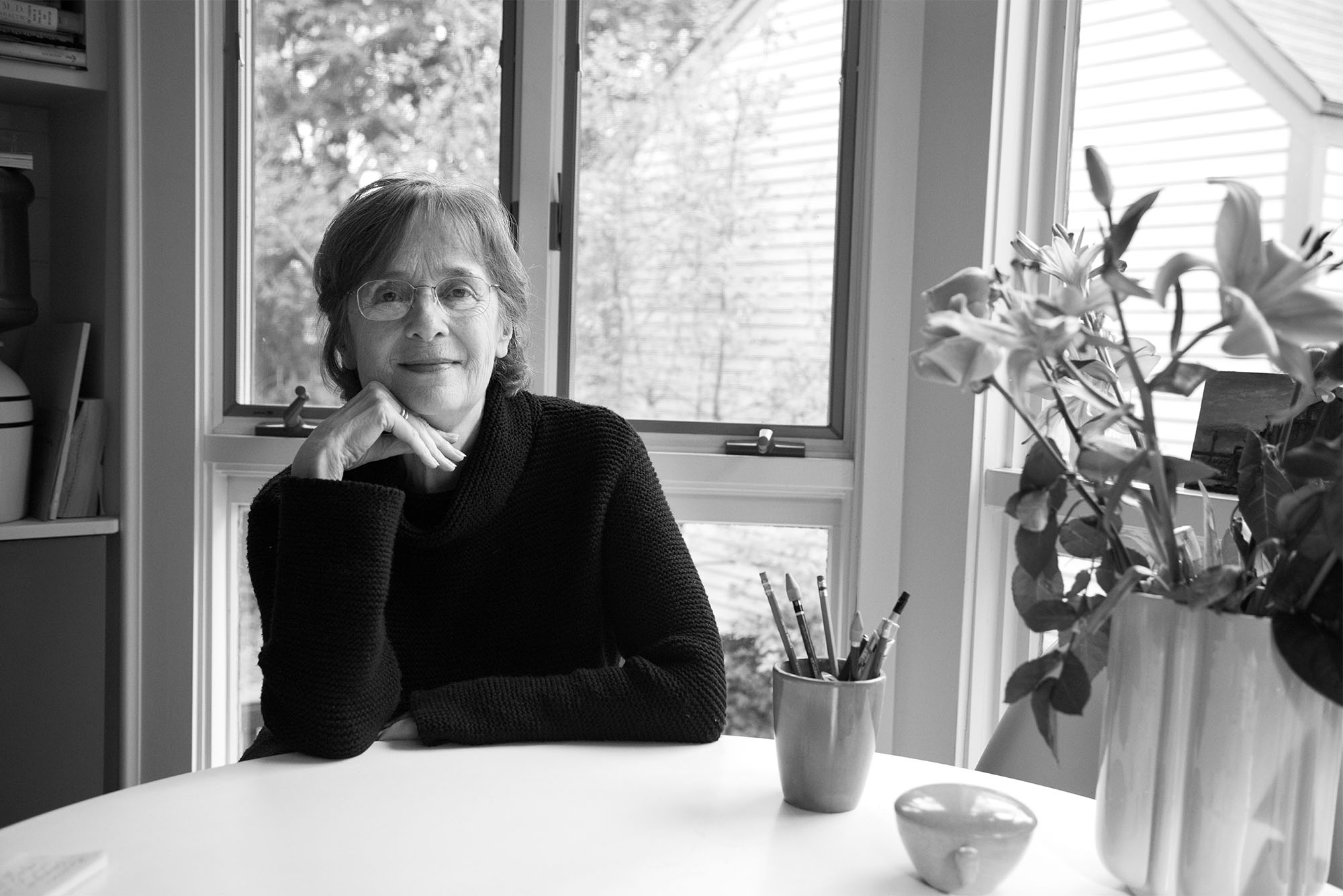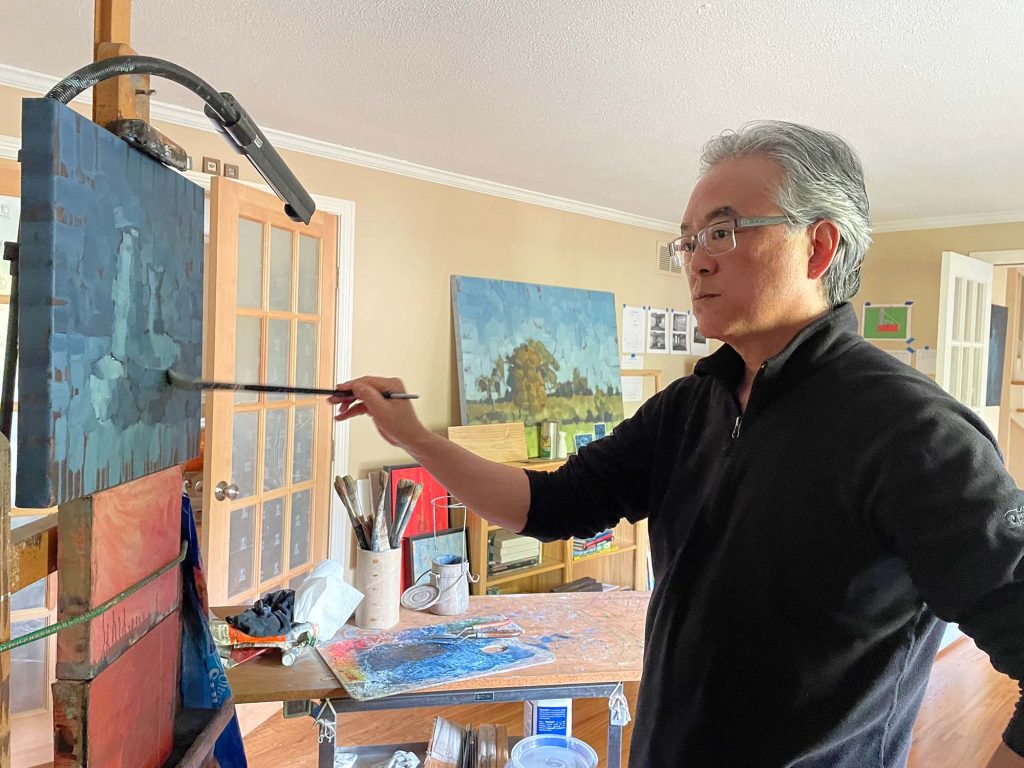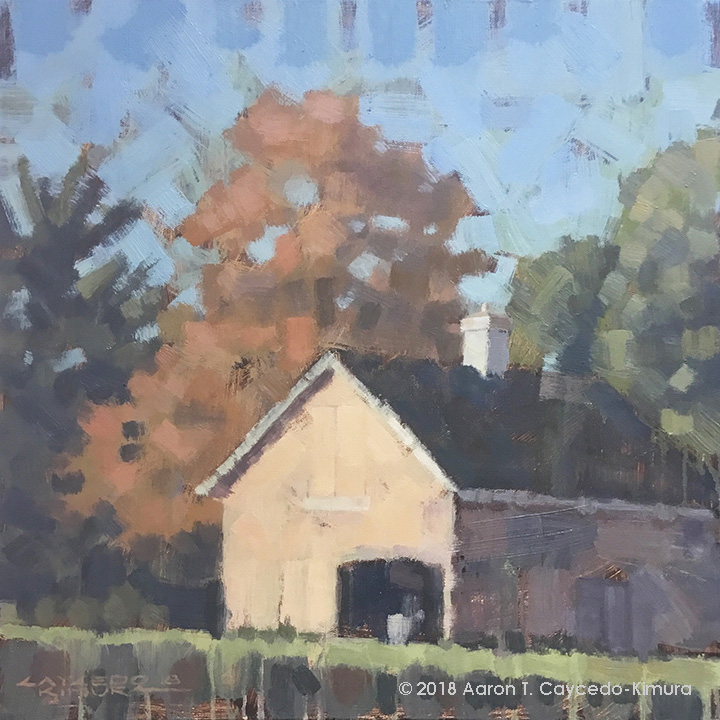A BU Teacher and Her Former Student Headline Lowell Memorial Poetry Reading
Gail Mazur, Aaron Caycedo-Kimura (GRS’20) will read from their work Thursday at virtual event

Gail Mazur, the author of eight volumes of poetry, says that for her, “poems begin with words, the ideas usually emerge rather than begin it.” Photo by M. Lacasse
A Teacher and Her Former Student Headline Lowell Memorial Poetry Reading
Gail Mazur, Aaron Caycedo-Kimura (GRS’20) will read from their work Thursday at virtual event
Gail Mazur still recalls the moment she fell in love with poetry, never mind that it was more than 65 years ago. She was 16 and a friend had taken her to an event at Brandeis University honoring Pulitzer Prize–winning poet William Carlos Williams. The panel included Robert Lowell, Elizabeth Bishop, Richard Wilbur, W. S. Merwin, and Louise Bogan, all among the most influential poets of the 20th century. “It was probably the most thrilling event of my first 16 years,” Mazur says.
It would be another decade before she began writing poems of her own in earnest after a friend brought her to Grolier Poetry Book Shop in Harvard Square, where she became friends with a circle of local poets and began attending Lowell’s famous “office hours” at Harvard University. She was 40 when her first collection, Nightfire, was published in 1978.
Now 83 and the prize-winning author of eight books (the most recent, Land’s End: New and Selected Poems, was published last year), Mazur is a highly regarded writer of poems that explore the vagaries of daily life, laced with a keen sense of humor.
Thursday night at 7, she will read from her work as the featured speaker at this semester’s Robert Lowell Memorial Poetry Reading, which is going virtual in a nod to the ongoing coronavirus pandemic.
A lifelong Red Sox fan, Mazur is perhaps best known for her poem “Baseball,” which begins with the lines: “The game of baseball is not a metaphor/and I know it’s not really life.” Written in the 1970s, long before the team’s recent forays to four World Series titles, the poem expresses what Mazur describes as “the joys and crushing disappointments of being a Sox fan [maybe especially this past week]. Striving and failing. And the physical beauty of the ballpark and the game.” The poem, now widely anthologized, came to Mazur in a rush. “It may be the only poem I’ve written that came out nearly finished,” she says.
Far more often, her poems take shape only after numerous revisions, according to Mazur. “So much of a first draft can be impulse and inspiration. Revision is the ‘work.’ Sometimes you’re sure a poem is done and it’s only begun. One has to, at least in some way, enjoy revising, just making the thing better, making it all click into place. Making it work.”
For her, poems can be triggered by a single word or a phrase that comes to her when she’s walking down a street or reading a line in a newspaper or hearing a snippet of a phone conversation. “The poems begin with words, the ideas usually emerge rather than begin it. The important thing is not to lose the moment when the words begin to come,” she says. “You have to find some way to capture it, on a napkin or a notebook, because those moments are fleeting.”

Joining Mazur at the virtual reading will be a former student, Aaron Caycedo-Kimura (GRS’20). He enrolled in BU’s MFA Creative Writing Program after his wife, Luisa Caycedo-Kimura (GRS’14) graduated from the program and raved about it. It wasn’t until she became serious about becoming a poet that he was inspired to pursue his own writing. “Luisa began showing me drafts of her work for feedback, and I had no clue what to say. I thought that if I were to study on my own and start writing, I’d eventually be able to give her some reasonable feedback. She also started taking me to poetry readings. With all that inspiration, I couldn’t help but try my hand at it.”
He enrolled in BU’s MFA program because he wanted to study with Robert Pinsky, a William Fairfield Warren Distinguished Professor and a College of Arts & Sciences professor of English and three time US poet laureate. “Toward the end of Luisa’s time in the program, I read his Singing School. It presented poetry in such a way that it clicked for me. It made me feel like I get this. I can do this. I can write poetry.” Enrolling in the MFA program and studying under Pinsky, Mazur (she has been a visiting lecturer in the program), and Karl Kirchwey, a CAS professor of English and associate dean of the faculty, humanities, was “a dream come true,” Caycedo-Kimura says. “The program was the best thing I have ever done for my creative life.”
Like Mazur, Caycedo-Kamura came to poetry relatively late, publishing his first collection of poems, the award-winning chapbook Ubasute, only last year, at age 57. He originally trained as a musician, but during his second year of graduate school at Julliard, realized he didn’t want to be a professional musician. He had always felt that he was more visually oriented, and he began picking up jobs as a computer graphics artist to pay the bills, painting on the side. Growing up in Santa Rosa, Calif., the hometown of Peanuts creator Charles Schultz, he would draw Snoopy and Charlie Brown, before moving on to caricatures of people and political cartoons. Eventually, he became an accomplished painter. His work as a visual artist influences his poetry, he says, and vice versa. “I like to say that I’m a poet because sometimes I like to paint without the material mess…the two pursuits are very similar, both in the process and product.”
Caycedo-Kimura’s first collection of poems, the chapbook Ubasute, pays tribute to his parents: his father, Joe, who died in 2011, spent World War II in a Japanese internment camp on the West Coast; his mother, Hama, survived the firebombing of Tokyo during the war and was haunted by it throughout her life. She died in 2015.
“I write about my parents as a way to keep them alive in my life and as a way to continue honoring them,” he says. “Writing about them gives me a deeper appreciation for them.”
His debut full-length collection of poems, Common Grace, will be published by Beacon Press next fall. The 65 poems are divided into three sections, drawing on different facets of his life. “In the first section, ‘Soul Sauce,’ I introduce myself through poems about my experiences related to my Japanese American heritage, my life as a visual artist and poet, and growing older. The second section, ‘Ubasute,” is an expanded version of my chapbook and deals with my parents’ experiences during World War II, then becoming newlyweds and parents, settling in suburbia, and growing old and dying.” The third section, titled “Gutter Trees,” comprises poems about his life with his wife.
“Reading and writing go hand in hand,” he says. “I get the memory or idea down on the page in a brain-drain sort of way, writing as much about it as I can.” He also shares with Mazur a similar philosophy about the importance of revising poems: “Revision is everything. Revision is writing. Revision is sculpting. That’s where one shapes a piece.”
Does he think of himself primarily as a visual artist or a poet? The word “poet,” he notes, comes from the Greek word meaning “to make.”
“The poet is a maker. That’s how I think of myself as a visual artist, too. So foremost, I’m a maker, who expresses himself through words and paint.”
The artist in his studio in Bloomfield, Conn. (left); photo by Luisa Caycedo-Kimura. Woodford Farm Barn, by Aaron Caycedo-Kimura (right); photo courtesy of the artist.
Pinsky, who organizes the twice-yearly Lowell Memorial readings, says tonight’s is “not to be missed.
“In Gail Mazur’s Land’s End, her recent collection of new and selected poems, a lifetime of masterful work includes celebration and wonder, laughter and invention, as well as elegy: all with the joy of art,” Pinsky says. “Aaron Caycedo-Kimura’s chapbook Ubusute is a memorial, a loving account of his parents and their creations—a family, a garden, a rising above the infamous internment camps. In length, in setting, in generation, these books by a teacher and her student are far apart. In their soaring toward understanding, in the music of poetry, they are similar.”


Comments & Discussion
Boston University moderates comments to facilitate an informed, substantive, civil conversation. Abusive, profane, self-promotional, misleading, incoherent or off-topic comments will be rejected. Moderators are staffed during regular business hours (EST) and can only accept comments written in English. Statistics or facts must include a citation or a link to the citation.